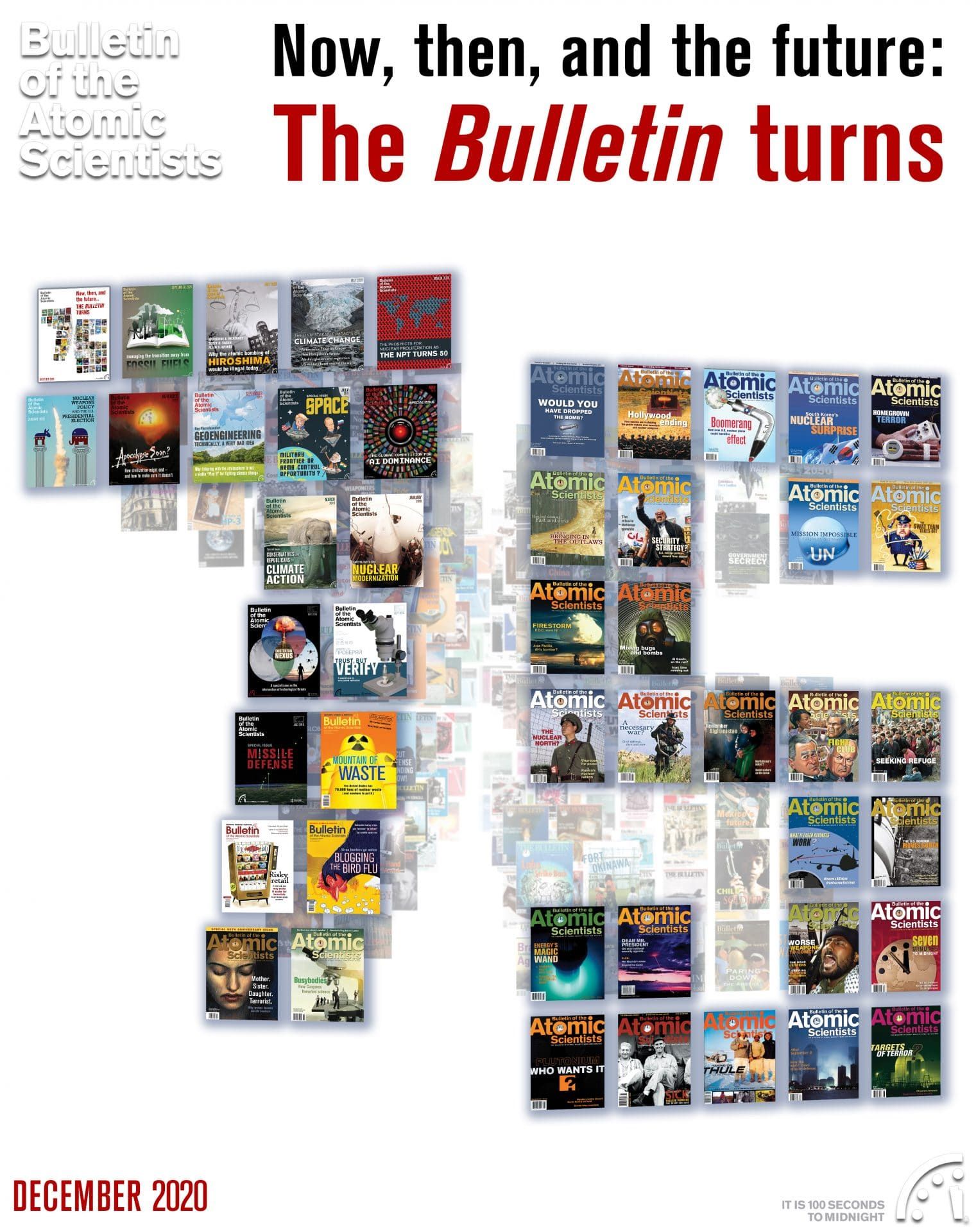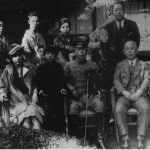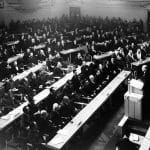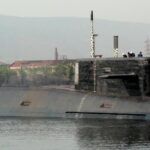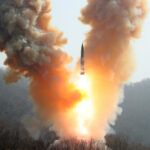1992: What is to be done?
By Arthur C. Clarke | December 7, 2020
1992: What is to be done?
By Arthur C. Clarke | December 7, 2020
Editor’s note: This article was originally published in the May 1992 issue of the Bulletin, as part of a package on the collapse of the Soviet Union and the end of the Cold War.[1] It is republished here as part of our special issue commemorating the 75th year of the Bulletin.
It is time, once again, to start thinking about the unthinkable. The world has changed beyond recognition since Herman Kahn coined that phrase in the early 1950s: happily, we can now concentrate our thoughts on peace, not war.
Although the control of nuclear weapons remains a major issue, it is no longer the central one. The damage inflicted by “conventional” weapons (smart or stupid—it made no difference to the civilians in that Baghdad bunker) is so appalling that major improvements are hardly necessary. And environmentally inconsiderate though it may be, I suspect that if we were given a choice, most of us would prefer to be killed by nuclear bombs rather than by bayonets or nerve gas.
So let us stop arguing over details, and consider this fundamental question: What weapons, if any, would a civilized world society require?
No crutches
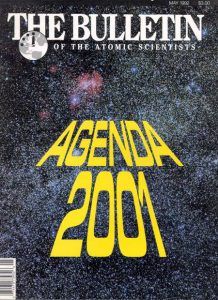 It may help us to focus on an issue closer at hand—gun control. There are a few categories of people who need (that is, require) guns—police, security guards, game wardens. Unfortunately, there are far too many people who want guns—indeed, lust after them—often chanting like a mantram the poisonous half-truth, “Guns don’t kill people; people do.” Nor, by the same crazy logic, do nuclear bombs kill people; but they make the job a lot easier.
It may help us to focus on an issue closer at hand—gun control. There are a few categories of people who need (that is, require) guns—police, security guards, game wardens. Unfortunately, there are far too many people who want guns—indeed, lust after them—often chanting like a mantram the poisonous half-truth, “Guns don’t kill people; people do.” Nor, by the same crazy logic, do nuclear bombs kill people; but they make the job a lot easier.
The impulse behind those who want guns, instead of requiring them, is obvious. For such Rambo clones seeking surrogate ejaculation, I once coined the slogan: “Guns are the crutches of the impotent.” Similarly, high-tech weapon systems are the crutches of impotent nations; nukes are just the decorative chromium plating. Let us see what crutches we can throw away, to walk proudly into a decent future.
The first criterion for civilized weaponry should be the total avoidance of “collateral damage” (to use another piece of mealy-mouthed Pentagonese like “friendly fire.”) In fact, no device that could kill more than the single person targeted should be permitted. A larger radius of action could be allowed only for instrumentalities that produced temporary disablement, such as the “gas of peace” in H.G. Wells’s Things to Come, acoustic or actinic bombs, water cannons, or hypodermic guns. Many more such devices could be found if a fraction of the effort devoted to slaughtering people was spent devising ways of immobilizing them.
To deal with the sort of minor disturbances that may require police action even in the most utopian society, here are the “minimum force” items that could be added to the above:
- non-lethal martial-arts devices, such as quarterstaffs (Robin Hood had the right idea).
- genetically modified feline, canine, ursine, or simian aides, preferably in the five hundred-kilogram class, playing the same role as today’s guard dogs, but with higher l.Q.s.
- passive-defense robots (Robocop, with Asimov’s Three Laws).
The permitted delivery systems for all these would include bicycles, scooters, jeeps, hovercraft, and helicopters.
So much for basic law and order. But for real emergencies, which will occasionally arise even in utopia, single-shot rifles and handguns could be issued, perhaps only under presidential orders.
And that’s it. We are now one global family, and however much we may dislike our siblings, family quarrels should not be settled with hand grenades or AK-47s-much less with ICBMs.
Technoporn
At this point, many of my readers will be muttering, ”You can’t change human nature,” as if such a thing exists. Perhaps the only characteristic that distinguishes humans from the other animals is our infinite flexibility—and our ability to take for granted changes that once seemed inconceivable. Not so many centuries ago there were societies in which a gentleman would feel naked without a sword—and he was prepared to use it.
There was a time when public executions were common entertainments. We still have a very long way to go, but those who deny that H. sapiens is incapable of making the adjustments necessary to survive are traitors to their species.
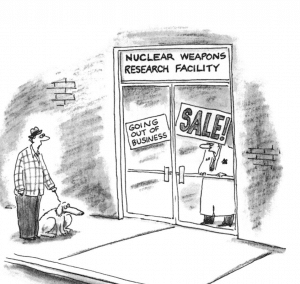 Still, as Lenin once asked, ”What is to be done?” There is no simple answer to this enormously complex question, and many of the obvious solutions, however attractive they may seem, will be counterproductive. Thus it now appears that President Ronald Reagan’s well-targeted ”Evil Empire” rhetoric, and much of the U.S. military buildup during the Reagan administration, only served to strengthen the hand of the paranoiacs in the Kremlin. With the 20-20 hindsight of history, one can argue that a more conciliatory attitude would have produced better results. Whether such an attitude would have been politically feasible for a chief executive who was such a willing captive of the military-industrial complex (MIC) is quite another question.
Still, as Lenin once asked, ”What is to be done?” There is no simple answer to this enormously complex question, and many of the obvious solutions, however attractive they may seem, will be counterproductive. Thus it now appears that President Ronald Reagan’s well-targeted ”Evil Empire” rhetoric, and much of the U.S. military buildup during the Reagan administration, only served to strengthen the hand of the paranoiacs in the Kremlin. With the 20-20 hindsight of history, one can argue that a more conciliatory attitude would have produced better results. Whether such an attitude would have been politically feasible for a chief executive who was such a willing captive of the military-industrial complex (MIC) is quite another question.
I wonder if the recent occupant of the White House ever came across these words: “Every gun that is fired, every warship launched … signifies in the final sense, a theft from those who hunger and are not fed, those who are cold and are not clothed.” Typical bleeding heart liberal pacifist sentiments of course—except that they were those of President Eisenhower, when he alerted his countrymen to the dangers of the above-mentioned MIC.
I have many good friends in this amorphous entity, which perhaps should be renamed the MSC (military-scientific complex), but the sooner it is put out of business the better for humankind. The old description, “merchants of death” is all too accurate. By comparison, the Mafia and the drug cartels are minor nuisances. (Incidentally, there is a very cozy relationship between arms dealing and the international drug trade, especially in the Orient and South America.)
But how to counteract the intellectual and emotional fascination of warfare, especially as embodied in today’s glamorous weaponry? Be honest: When did you last see anything as exciting on TV as the opening hours of the Gulf conflict?
Not only the glossy pages of aerospace magazines but also the arts are peddlers of what I have labeled “technoporn.” Much as I admire it as movie making, I am afraid George Lucas’s Star Wars saga is a perfect example, with its fascinating hardware and gorgeous explosions.
Even more relevant, because it mirrors the real world, is Top Gun. One day our grandchildren may be able to view such a superb piece of movie making with the same guilty enjoyment we must now feel when screening Leni Riefenstahl’s brilliant (and mildly homoerotic) paean to Aryan manhood, her film of the 1936 Berlin Olympics, Triumph of the Will. No great harm—as long as you realize exactly what’s going on.
And while on the subject of aesthetics, I see one faint flicker of hope in current military designs. Many of the tools of warfare were once beautiful: Excalibur, medieval armor, the Tudor flagship, the Spitfire … even the V-2. But today’s weapons often look as hideous as their purpose: consider the Stealth fighter or any of the late Warsaw Pact’s tanks. Perhaps our collective unconscious is signaling to us, and none too soon.
Credibility gap
To be more practical, when appeals to nobler instincts fail, the dollars-and-cents approach may succeed. There would be a concerted outcry for the dismantling of the MIC with all deliberate speed if its disastrous impact on the economy were fully appreciated. By concentrating their best brains and most valuable resources on projects that are worse than non-productive, the United States and the Soviet Union embarked on a race to ruin which, history may yet record, resulted in a photo-finish.
And don’t talk to me about “spin-offs.” They exist, but—with a few notable exceptions like applications satellites—most of them are trivial. We would gladly do without ceramic kitchenware if we could dispense with the missile nose cones that spawned it. Had the United States been able to emulate World War II’s real victors, Germany and Japan, and concentrate on civilian consumer goods, would General Motors have been humbled and the textile mills of New England closed? Los Angeles did not destroy Detroit as dramatically as Los Alamos destroyed Hiroshima, but the black holes of the California defense industry helped to suck away its lifeblood. Even domestic electronics, which should have benefited most from military spin-offs, failed to take advantage of them. The United States invented the VCR—but when did you last see one marked “Made in America”? Or, for that matter, a wholly home-grown TV set? Why bother to make them, when there was easier money from the Pentagon?
Unfortunately, this is a hard lesson to get across, especially to defense-plant workers who have been laid off. Craven congressmen who vote billions for weapons systems, which everyone knows are unneeded, only postpone the inevitable. There should be no need to stress the obscenity of such behavior in a world where the price of a B-2 bomber could save a million children from lingering deaths. President Eisenhower said it all nearly 40 years ago.
 Yet even people of good will and intelligence can be seduced by glamorous technology—did not Oppenheimer use the word “sweet” for Ulam’s H-bomb breakthrough? No better modern example of that seduction could be given than SDI (Version 1.0)—the concept of a nuclear umbrella over the United States.
Yet even people of good will and intelligence can be seduced by glamorous technology—did not Oppenheimer use the word “sweet” for Ulam’s H-bomb breakthrough? No better modern example of that seduction could be given than SDI (Version 1.0)—the concept of a nuclear umbrella over the United States.
The U.S. Navy destroyed the credibility of Version 1.0 when its most advanced weapons system shot down an Iranian airliner—on a scheduled flight, in broad daylight. Anything left of SDI was buried without honors by AT&T—the hours-long failure of its telephone system last year, after decades of testing and debugging, is an instructive techno-disaster. In one of the last letters I received from him, Luis Alvarez (how we missed you, Luie, during the “cold fusion” caper!) referred to certain Star Warriors as “very bright guys with no common sense.” Perhaps even now they have learned from the two examples I have mentioned.
Fax pax
And yet—the SDI affair demonstrates the excruciating difficulty of answering Lenin’s eternally valid question—”What is to be done?” The originally advertised SDI concept may have been technological nonsense, but it was brilliant politics. It wouldn’t have fooled scientists like Roald Sagdeyev for a moment, but it may have scared the hell out of some of his countrymen with more medals than brains. We’ll never know for sure, but those (like myself) who criticized SDI may have done an involuntary disservice to peace.
In penance, let me give two faint cheers for Son-of-SDI—if it is completely unclassified, if its objectives are sensibly defined, and if it does not divert attention from such really dangerous delivery systems as off-shore submarines and diplomatic bags. Although I suspect that a “Tactical Defense Initiative” would fail precisely when it was supposed to work (remember the Pearl Harbor radar?), it’s a good idea to explore the technology. We may need it sooner than we imagine—almost certainly within the next thousand years. There have been two megaton-class meteor impacts on Planet Earth during this century (1908, 1947; both in Siberia). Something may be seriously wrong with all those reassuring statistics as to how unlikely we are to have a close encounter of the wrong kind.
To return to the more immediate challenge of Lenin’s question (which unfortunately for his countrymen, he answered incorrectly), can anyone do much better in this time of geopolitical meltdown? Long-range planning is out of the question; the best that any present-day statesman can hope to achieve is what the poet Robert Bridges called “the masterful administration of the unforeseen.”
One basic necessity for the new world system is clear. Many wars in the past have been caused by fears and suspicions that were unjustified. Openness … glasnost … transparency … is a key ingredient for the avoidance of future conflicts, and the technology of the space age has made this not only possible but inevitable. The reconnaissance satellites (of the United States and the late Soviet Union) may well have averted World War III. Together with such ubiquitous communications devices as fax machines and portable satellite telephones, they are the best guarantees of “peace through truth.” As President Reagan put it, with the hard-won cynicism of the practical politician, “Trust but verify.” What have been christened “peacesats” will be a necessary though not sufficient part of the process.
Yet peace is not enough. We need excitement, adventure, new frontiers. That, hopefully, is one aspect of ”human nature” that will never change. Although there are problems enough in today’s world to absorb all our energies, listing them is likely to evoke yawns rather than enthusiasm. Of course we need more hospitals, more food, more energy, better housing, less pollution. Above all, we need better schools and teachers. I hope it is not too late for the United States to undo the damage wrought to its educational system by fundamentalist fanatics, creationist crazies, and New Age nitwits. Such people are a greater menace to an open society than the paper bear of communism ever was.
Eyes on the stars
Many pundits (starting, I believe, with William James) have stressed that mankind needs a substitute for war. Sport, especially as exemplified in the Olympics, goes part of the way; but even American football and Canadian ice hockey do not provide all the necessary ingredients.
However, there is one activity, which, almost as if it were divinely planned, fully utilizes the superb talents of the above-criticized MIC. I refer, of course, to the exploration—and ultimately, the colonization—of space. Many, and some of the most pressing, of our terrestrial problems can only be solved by going into space.
Long before it was a vanishing commodity, Thoreau proclaimed: “In wildness is the preservation of the world.” In the new wilderness of the solar system may lie the future preservation of mankind.
Having already written far too much on that subject, I will merely draw attention to the planned mission to Mars selected by President Bush as a goal for the fiftieth anniversary of the lunar landing of Apollo 11 (2019), and the current activities in connection with the International Space Year. We have to clean up the gutters in which we are now walking—but we must not lose sight of the stars.
Though I hope that someone can preempt me, it appears that more than four decades ago, in the March 1946 Royal Air Force Quarterly, I had the dubious honor of first enunciating the doctrine of Mutual Assured Destruction. Too much thinking about MAD is liable to induce that dislocation from reality, the Strangelove syndrome, for which there is no known cure. I was very glad to say farewell to the whole dismal subject when I delivered the 1986 Nehru address, “Star Wars and Star Peace” in Delhi.
In his thoughtful and witty speech of thanks, Prime Minister Rajiv Gandhi remarked, “Forty years ago, Dr. Clarke said that the only defense against the weapons of the future is to prevent them being used. Perhaps we could add to that, we should prevent them being built …. It’s time that we all heed his warning …. I just hope people in other world capitals also are listening.”
If not, here is one final quotation, from H.G. Wells: “You damn fools! I told you so!”
Together, we make the world safer.
The Bulletin elevates expert voices above the noise. But as an independent nonprofit organization, our operations depend on the support of readers like you. Help us continue to deliver quality journalism that holds leaders accountable. Your support of our work at any level is important. In return, we promise our coverage will be understandable, influential, vigilant, solution-oriented, and fair-minded. Together we can make a difference.
Keywords: Cold War, archive75
Topics: Nuclear Weapons

